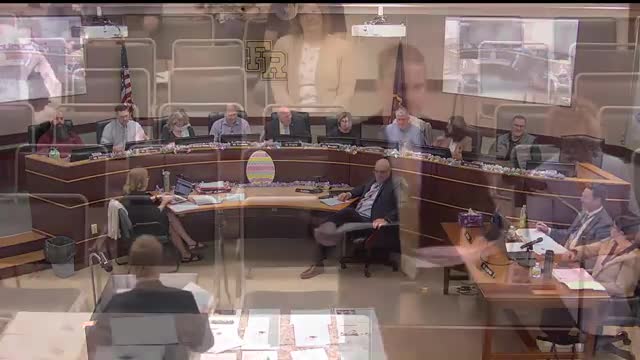External auditor gives Franklin Regional unmodified opinion; district moves millions into capital reserve
Get AI-powered insights, summaries, and transcripts
Subscribe
Summary
An independent audit found the Franklin Regional School District’s 2023–24 financial statements presented fairly; the district recorded a roughly $4.7 million increase in general fund balance and is recommending a $3 million transfer to capital reserve and a $1.5 million general-fund commitment for debt-service stabilization.
Mark Turnley, the district’s independent external auditor, told the Franklin Regional School Board on April 22 that the district’s fiscal-year 2023–24 financial statements received an “unmodified opinion,” commonly called a clean opinion, and that compliance testing of the National School Lunch Program turned up no material findings.
Turnley said the district ended the year with about $15.99 million in general fund balance, roughly a $4.7 million increase from the prior year. He told directors much of the increase reflected an internal reclassification: the district closed a separate technology fund and transferred about $2.3 million of remaining technology reserves into the general fund while continuing to earmark those dollars for technology purposes.
The audit synopsis Turnley presented also credited higher-than-expected tax collections and stronger interest earnings for boosting revenues, and noted modest federal and state revenue increases including remaining ESSER (Elementary and Secondary School Emergency Relief) funds. Turnley described a five-year history of revenues and expenditures and said general fund revenues exceeded budget by about $5 million while general fund expenditures were only about 0.3% over budget.
Board discussion focused on the sources of the roughly $1.7 million increase in tax collections. John Perry, district finance staff, said the change was “mainly due to the mill increase,” adding that assessed-value growth from new construction and incoming businesses was modest and that earned-income-tax growth reflected wage growth. Perry and Turnley also said delinquent real estate collections produced a lumpy, timing-driven uplift.
Turnley warned directors that a consolidated “corporate balance sheet” that adds long‑term assets and liabilities shows a large net deficit driven primarily by the district’s share of the state pension liability. He said the actuarial pension liability (shown for 6/30/2024) was approximately $85 million, a reporting item required on the government‑wide statements that does not represent a near‑term cash payment demand.
Separately, district staff recommended that the board transfer $3 million from the general fund into the capital reserve fund and commit $1.5 million of general‑fund balance for future debt‑service stabilization. The recommendation, developed with the finance committee, drew comment that the transfer largely repurposed funds previously held in escrow related to the elementary campus site work; staff said the move is intended to align resources with the board’s five‑year capital plan.
The audit briefing concluded with Turnley reiterating the unmodified opinion and the lack of material compliance findings. Board members thanked the auditor and district finance staff for the report.
Votes at a glance: The audit report was presented; no formal vote was recorded on the audit presentation itself. The board later approved consent and roll‑call agenda items (see related article for a full list of approvals).
